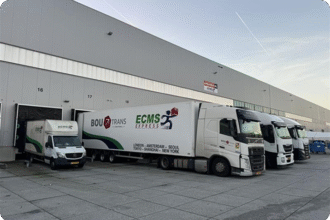The emergence of autonomous vehicles (AVs) is set to revolutionize the car shipping industry. With self-driving technology advancing rapidly, the integration of AVs into logistics promises to improve efficiency, cut costs, and introduce innovative operational models. In this post, we explore the significant impacts of AVs on car shipping, focusing on key areas like efficiency, cost savings, regulatory challenges, and environmental sustainability.
Enhanced Efficiency and Safety
Autonomous vehicles leverage cutting-edge technologies such as AI-driven algorithms and sensors, which offer significant improvements in transportation operations. These vehicles communicate seamlessly with Transportation Management Systems (TMS), optimizing routes, balancing loads, and enhancing overall logistics.
Key Benefits:
- Reduced empty miles – AVs optimize travel routes to minimize unnecessary miles, improving supply chain efficiency.
- Enhanced safety – By removing human error from driving, AVs reduce the risk of accidents, injuries, and damages, ensuring safer transport.
The result is not only a more reliable system but also a substantial increase in productivity and operational safety, making it easier for businesses to ship car across country with confidence.
Substantial Cost Savings and Operational Optimizations
AVs offer significant financial benefits, particularly in terms of operational costs. With fewer human drivers and optimized driving patterns, companies can drastically reduce expenses and increase profitability.
Cost-Saving Highlights:
- Reduced labor costs – AVs eliminate the need for drivers, cutting payroll expenses.
- Improved fuel efficiency – Autonomous driving reduces fuel consumption by optimizing speed, braking, and routing.
- 24/7 operation – AVs can run continuously, leading to faster deliveries and better use of resources.
Estimates suggest the U.S. trucking industry could save between $85 billion to $125 billion annually. For car shipping, this means lower costs and faster delivery, catering to the growing demand for quick shipping in the e-commerce sector.
Shaping New Business Models
As AV technology progresses, car shipping companies are exploring innovative business models that make transportation more flexible and scalable.
New Opportunities:
- Shared mobility – AVs enable the development of on-demand, self-driving vehicle fleets, reducing the need for large, static fleets.
- Fleet management – TMS solutions are evolving to accommodate autonomous fleets, offering dynamic dispatching and better fleet optimization.
- Customizable services – Companies can offer more flexible and tailored transportation solutions to meet the specific needs of customers.
These new models allow businesses to stay agile and better meet customer expectations in a rapidly changing market.
Navigating Regulatory and Legal Challenges
The rise of autonomous vehicles brings new legal and regulatory challenges that companies must navigate carefully. These issues can vary by region, requiring businesses to stay informed and adaptable.
Regulatory Concerns:
- Data privacy – Autonomous vehicles generate vast amounts of data, which raises concerns about data security and privacy.
- Liability issues – In the event of an accident, determining responsibility could become more complex when vehicles are operated autonomously.
- Compliance – TMS platforms need to evolve to ensure compliance with changing regulations governing AVs.
It’s essential for top rated car shipping companies to integrate these considerations into their operations, staying compliant with legal frameworks while maximizing the potential of autonomous technologies.
Environmental Sustainability
AVs present a unique opportunity to make car shipping more environmentally friendly. Many autonomous vehicles are designed with electric powertrains, reducing the reliance on fossil fuels and lowering emissions.
Sustainability Benefits:
- Reduced emissions – Electric AVs help reduce greenhouse gas emissions, aligning with sustainability goals.
- Optimized routes – AVs minimize fuel consumption by taking the most efficient routes, which contributes to optimized logistics and scheduling, reducing overall environmental impact.
- Decreased congestion – By minimizing human error, AVs reduce traffic and congestion, contributing to cleaner air and fewer delays.
As sustainability becomes a top priority for businesses, adopting AV technology can help companies meet their environmental targets while improving efficiency.
Conclusion:
The rise of autonomous vehicles is more than just a technological advancement; it’s a paradigm shift that will reshape the car shipping industry. AVs promise improved efficiency, significant cost savings, and a new era of business flexibility.
By embracing this transformation, companies can stay ahead of the competition, meet growing consumer demand, and position themselves as leaders in a rapidly evolving market. The road ahead is clear—autonomous vehicles are the future of car shipping, offering unparalleled benefits for both business operations and environmental sustainability.

















